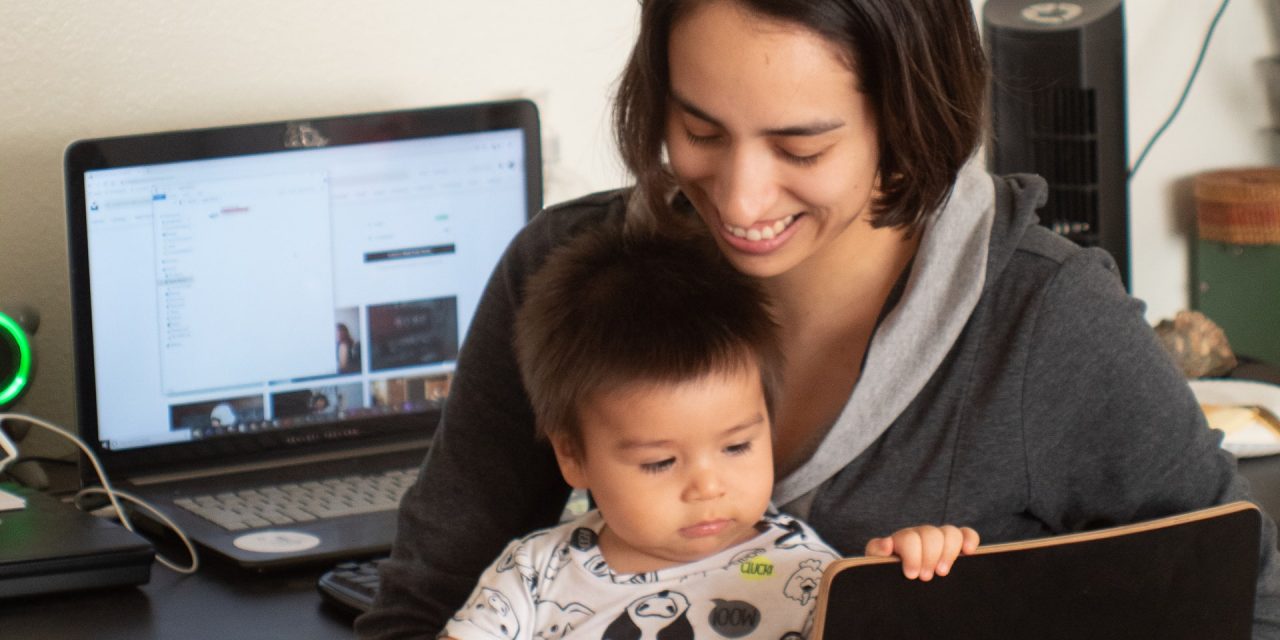What Is Successful Co-Parenting After Divorce?
To successfully co-parent after divorce, focus on open communication, prioritize your children’s well-being, and set clear boundaries. Consistency in parenting styles and flexible scheduling are key. Handle conflicts respectfully and support each other’s parenting decisions. Remember, seeking professional support can be beneficial.
Key Takeaways
- Open communication and active listening are essential.
- Prioritize the child’s well-being in decision-making.
- Set clear boundaries and respect personal space.
- Maintain consistent parenting styles for stability.
- Embrace flexibility, adapt to scheduling changes.
Importance of Communication

When maneuvering the complexities of co-parenting, it’s crucial to open communication is key in managing the complexities of co-parenting, allowing you and your ex-partner to discuss important matters regarding your children openly and honestly.
By practicing effective listening, you show respect for each other’s perspectives and demonstrate a willingness to work together for the well-being of your children.
When engaging in open communication, remember to listen attentively to what your co-parent has to say without interrupting. Validating their feelings and opinions can go a long way in building a cooperative co-parenting relationship.
It’s vital to communicate calmly and respectfully, even in times of disagreement, to maintain a positive co-parenting dynamic.
Putting Children First

When co-parenting after divorce, always remember to put your children first.
By embracing child-centered co-parenting practices and prioritizing your kids’ well-being, you can create a stable and nurturing environment for them.
Your commitment to focusing on what’s best for your children will guide your co-parenting journey towards success.
Child-Centered Co-Parenting
Prioritizing your children in a co-parenting arrangement is essential for their well-being and emotional stability after a divorce. From a child’s perspective, managing the changes that come with divorce can be challenging. It’s vital to employ co-parenting strategies that focus on putting your children first in all decisions.
Effective communication between co-parents is key in ensuring that the child’s emotions are acknowledged and addressed.
When practicing child-centered co-parenting, remember that your child’s well-being should always be the top priority. This means actively listening to their thoughts and feelings, validating their experiences, and creating a safe space for them to express themselves.
Coordinating schedules, discipline methods, and major decisions with your co-parent can help provide a sense of stability and consistency for your child during this shift.
Prioritizing Kids’ Well-Being
Always keep your children’s well-being at the forefront when managing the challenges of co-parenting after a divorce. Your kids are unquestionably the priority in this new chapter, and their emotional and mental health should guide your decisions.
Creating stability in their lives is essential during this change. Consistency in routines, rules, and expectations between households can provide a sense of security for your children.
Fostering resilience in your kids is another important aspect of prioritizing their well-being. Encourage open communication, validate their feelings, and reassure them of your love and support. Help them understand that the divorce isn’t their fault and that both parents will continue to be there for them.
Establishing Boundaries
To create a healthy co-parenting dynamic post-divorce, setting clear boundaries is vital. Establishing boundaries isn’t about creating distance but rather about fostering healthy relationships and mutual respect.
When setting boundaries with your co-parent, it’s essential to communicate openly and honestly. Clearly define expectations regarding parenting decisions, schedules, and important events. By doing so, you can avoid misunderstandings and unnecessary conflicts.
Remember, boundaries aren’t meant to be restrictive but rather liberating. They provide structure and stability, creating a sense of security for both you and your children. Respect each other’s boundaries and be willing to compromise when needed. Flexibility is key in maintaining a harmonious co-parenting relationship.
Setting boundaries also involves recognizing each other’s personal space and privacy. Avoid prying into each other’s personal lives and focus on co-parenting responsibilities. By establishing and respecting boundaries, you can build a strong foundation for successful co-parenting post-divorce.
Consistency in Parenting Styles
Hey there, co-parenting can be smoother when you and your ex-partner maintain a consistent parenting style. By aligning your approaches, you provide stability and predictability for your children post-divorce.
Unified Approach Benefits
Consistency in parenting styles can greatly benefit your children during and after a divorce by providing them with a sense of stability and security.
When co-parenting, aligning your parenting strategies with your ex-partner can lead to positive outcomes for your children.
Collaborative parenting, where both parents work together to maintain similar rules, expectations, and routines, can result in successful results for your kids.
By presenting a unified approach, you create a familiar environment for your children, reducing confusion and anxiety during an already challenging time.
Consistency in discipline, communication, and daily routines between households can offer a sense of predictability that helps children adapt more smoothly to the changes divorce brings.
This unified front shows your children that even though the family structure has changed, both parents are still there for them, providing love, support, and a consistent foundation on which they can rely.
Clear Communication Key
Maintaining clear and open communication with your co-parent is essential to ensuring consistency in parenting styles for the well-being of your children during and after a divorce. Active listening and mutual respect are key components in fostering effective communication.
By actively listening to each other’s perspectives and demonstrating mutual respect, you can create a foundation for open communication and shared goals in co-parenting.
Consistency in parenting styles provides children with stability and a sense of security during a time of significant change. When co-parents communicate openly and work together towards shared goals, they can establish common rules and routines that benefit their children.
Flexibility in Scheduling
Being open to adjusting schedules can greatly benefit your co-parenting relationship after divorce. Shared responsibilities and effective communication are the foundation of successful co-parenting. Coordinating schedules between two households can be challenging, but with flexibility and understanding, it becomes easier to navigate.
Remember, both you and your co-parent have responsibilities towards your children. Flexibility in scheduling allows for a smoother shift between homes and helps maintain stability for your kids. It’s crucial to communicate openly about any changes or adjustments that need to be made to the schedule.
By working together and being willing to accommodate each other’s needs, you create a more harmonious co-parenting dynamic.
Life is unpredictable, and unexpected events may arise that require modifications to the agreed-upon schedule. Showing flexibility in these situations demonstrates your commitment to prioritizing your children’s well-being above all else. Embracing this adaptability fosters a cooperative co-parenting environment that benefits everyone involved.
Respecting Each Other’s Decisions
Respecting each other’s decisions is essential for fostering a cooperative and respectful co-parenting relationship after divorce. Effective communication plays a vital role in ensuring that both parents feel heard and understood.
When making decisions regarding your children, it’s important to engage in open and honest discussions. Mutual support should be at the core of your interactions, recognizing that both parents have the best interests of the children at heart.
Acknowledging each other’s perspectives and being willing to compromise when necessary can create a harmonious co-parenting dynamic. Even if you disagree on certain matters, approaching discussions with empathy and understanding can help you find common ground.
Remember that successful co-parenting requires a willingness to collaborate and respect each other’s autonomy.
Managing Conflict Effectively

When conflicts arise in your co-parenting relationship, addressing them effectively is vital to maintaining a healthy and productive dynamic for the well-being of your children. Conflict resolution plays a significant role in ensuring that disagreements don’t escalate and negatively impact your children.
To manage conflict effectively, communication is essential. Make sure that discussions remain focused on the issue at hand and avoid bringing up past grievances. Implementing co-parenting strategies such as active listening and compromising can help find common ground and reach mutually beneficial solutions.
Remember that it’s normal to face disagreements in any relationship, and co-parenting is no exception. Approach conflicts with an open mind and a willingness to understand the other person’s perspective. By working together and respecting each other’s opinions, you can create a supportive environment for your children.
Keep in mind that the ultimate goal is to prioritize your children’s well-being and provide them with a stable and loving co-parenting relationship.
Supporting Each Other’s Parenting
To foster a harmonious co-parenting relationship, it’s essential to actively support each other’s parenting decisions and approaches. Parental support and mutual respect form the foundation for successful co-parenting. By demonstrating understanding and encouragement towards your co-parent’s choices, you create a positive environment for your children to thrive in.
Coordinating schedules is key to ensuring a smooth co-parenting dynamic. Working together to establish consistent routines and handovers can provide stability for your children during what might be a pivotal time. By maintaining open communication and being flexible when necessary, you can navigate scheduling conflicts with ease.
Presenting a united front to your children, despite any differences you may have with your co-parent, is pivotal. By showing a united front, you convey to your children that even though you’re no longer together, you can still work together as a team to support and guide them.
Seeking Professional Help When Needed

If you find yourselves struggling to navigate challenges in your co-parenting relationship, consider seeking professional help to guide you towards a more harmonious and effective partnership. Therapy options and co-parenting coaches can provide valuable support and guidance during difficult times. These professionals are trained to help you communicate better, manage conflicts, and develop strategies to co-parent successfully.
When seeking help, remember that coping strategies and mental health support are essential components of the process. A therapist can assist you in dealing with the emotional toll of co-parenting after divorce, offering tools to enhance your well-being and resilience. Additionally, a co-parenting coach can provide practical advice and tailored solutions to address specific issues within your co-parenting dynamic.
Embracing professional help is a proactive step towards creating a healthier co-parenting relationship. By investing in therapy and coaching, you prioritize your children’s well-being and strengthen your ability to collaborate effectively with your ex-partner. Remember, seeking support is a sign of strength and commitment to fostering a positive co-parenting environment.
Frequently Asked Questions
How Can Co-Parents Handle New Partners Entering Their Children’s Lives?
When new partners come into your children’s lives, establish clear communication boundaries with your co-parent. Be open about introducing partners and handling emotions. Remember, mutual support is crucial for the sake of your children’s well-being.
What Strategies Can Co-Parents Use to Navigate Holidays and Special Occasions?
During holidays and special occasions, communication is key. Set clear boundaries and be flexible. Compromise when needed to make certain your children have memorable experiences. Remember, working together for their happiness is what truly matters.
Is It Necessary for Co-Parents to Attend Events Together for Their Children?
In co-parenting, attending events together isn’t mandatory, but jointly deciding based on children’s well-being is key. Presenting a unified front fosters stability. Establish clear communication boundaries to guarantee harmony while prioritizing your children’s happiness and sense of security.
How Can Co-Parents Address Differences in Disciplining Their Children?
Addressing differences in disciplining your children is key to collaborative parenting. Consistency is vital; have open discussions, set clear rules together, and compromise when needed. Remember, your children benefit most when you present a united front.
What Should Co-Parents Do if One Parent Wants to Relocate With the Children?
If one parent wants to relocate with the children, it’s crucial to understand the legal implications and emotional impact. Open communication and willingness to compromise are key. Seek legal advice, listen to each other’s concerns, and prioritize your children’s well-being.
Conclusion
To sum up, successful co-parenting after divorce is possible with open communication, putting your children first, and respecting each other’s decisions.
Remember to establish boundaries, be consistent in parenting styles, and remain flexible in scheduling.
Managing conflict effectively and supporting each other’s parenting efforts are key.
And don’t hesitate to seek professional help when needed.
Your children deserve a positive and loving co-parenting relationship, and with effort and dedication, you can make it happen.

Chad Adan Kace, a young dad from Vermont, shares his parenting journey with a touch of humor and lots of love. Father to a lively baby, he explores the joys and challenges of fatherhood through his stories.







